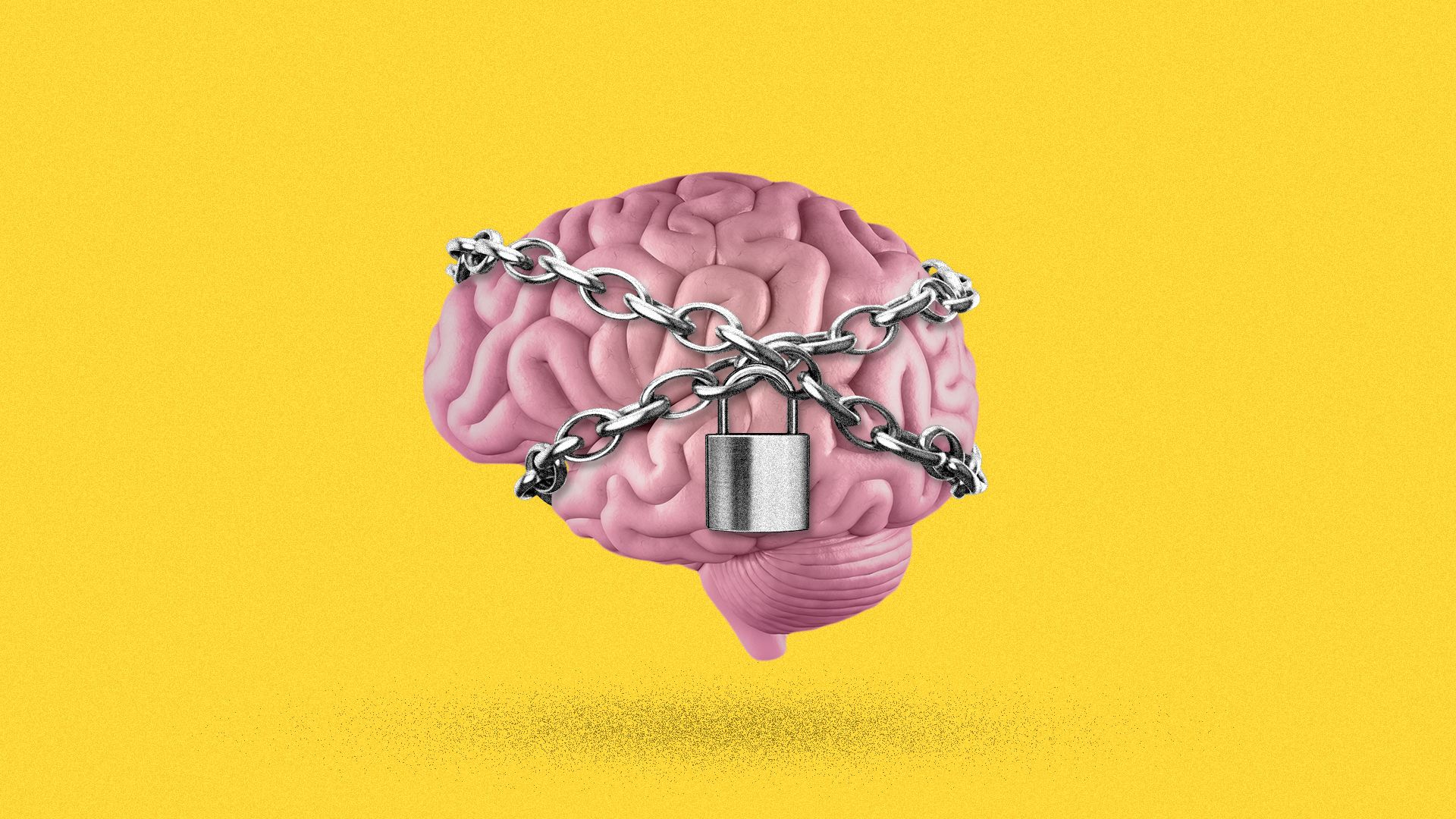What's happening: Machines that read brain activity from outside the head, or in some cases even inside the skull, are still relatively limited in the data they can extract from wearers' brains, and how accurately they can interpret it.
- But the tech is moving fast. We can now recognize basic emotional states, unspoken words and imagined movements — all by analyzing neural data.
- Researchers have found similarities in the way different people's brains process information, such that they can make rough guesses at what someone is thinking about or doing based on brain activity.
"These issues are fundamental to humanity because we're discussing what type of human being we want to be," says Rafael Yuste, a neuroscientist at Columbia.
The big picture: Clinical brain–computer interfaces can help people regain control of their limbs or operate prosthetics. Basic headsets are being sold as relaxation tools or entertainment gadgets — some built on flimsy claims — and market researchers are using the devices to fine-tune advertising pitches.
- Facebook and startups like Elon Musk's Neuralink are pouring money into a new wave of neurotechnology with bold promises, like typing with your thoughts or, in Musk's words, merging with AI.
- All of these devices generate huge amounts of neural data, potentially one of the most sensitive forms of personal information.
Driving the news: Neuroethicists are sounding the alarm.
- Earlier this month the U.K.'s Royal Society published a landmark report on the promise and risk of neurotechnology, predicting a "neural revolution" in the coming decades.
- And next month Chilean lawmakers will propose an amendment to the country's constitution enshrining protections for neural data as a fundamental human right, according to Yuste, who is advising on the process.
A major concern is that brain data could be commercialized, the way advertisers are already using less intimate information about people's preferences, habits and location. Adding neural data to the mix could supercharge the privacy threat.
- "Accessing data directly from the brain would be a paradigm shift because of the level of intimacy and sensitivity of the information," says Anastasia Greenberg, a neuroscientist with a law degree.
- If Facebook, for example, were to pair neural data with its vast trove of personal data, it could create “way more accurate and comprehensive psychographic profiles,” says Marcello Ienca, a health ethics researcher at ETH Zurich.
- There's little to prevent companies from selling and trading brain data in the U.S., Greenberg found in a recent peer-reviewed study.
Neural data, more than other personal information, has the potential to reveal insights about a brain that even that brain's owner may not know.
- This is the explicit promise of "neuromarketing," a branch of market research that uses brain scans to attempt to understand consumers better than they understand themselves.
- Ethicists worry that information hidden inside a brain could be used to discriminate against people — for example, if they showed patterns of brain activity that were similar to patterns seen in people with propensities for addiction, depression or neurological disease.
"The sort of future we're looking ahead toward is a world where our neural data — which we don't even have access to — could be used" against us, says Tim Brown, a researcher at the University of Washington Center for Neurotechnology.
